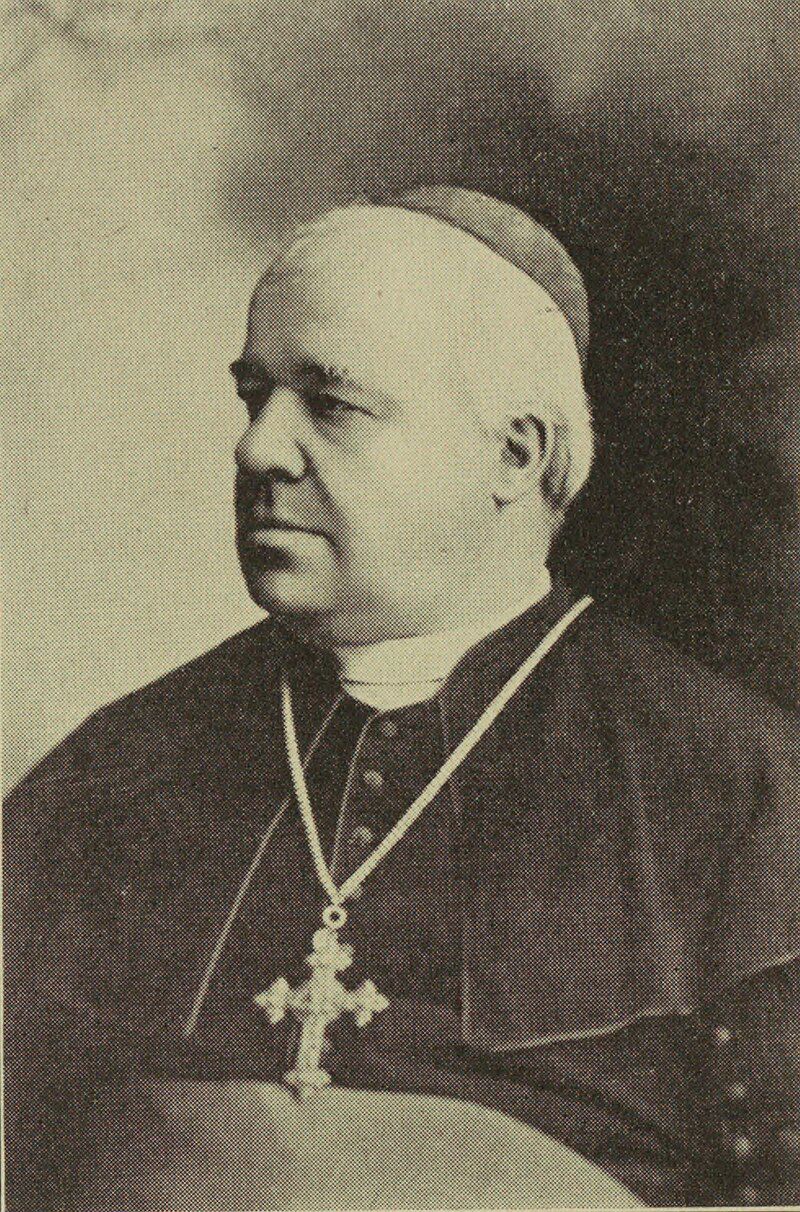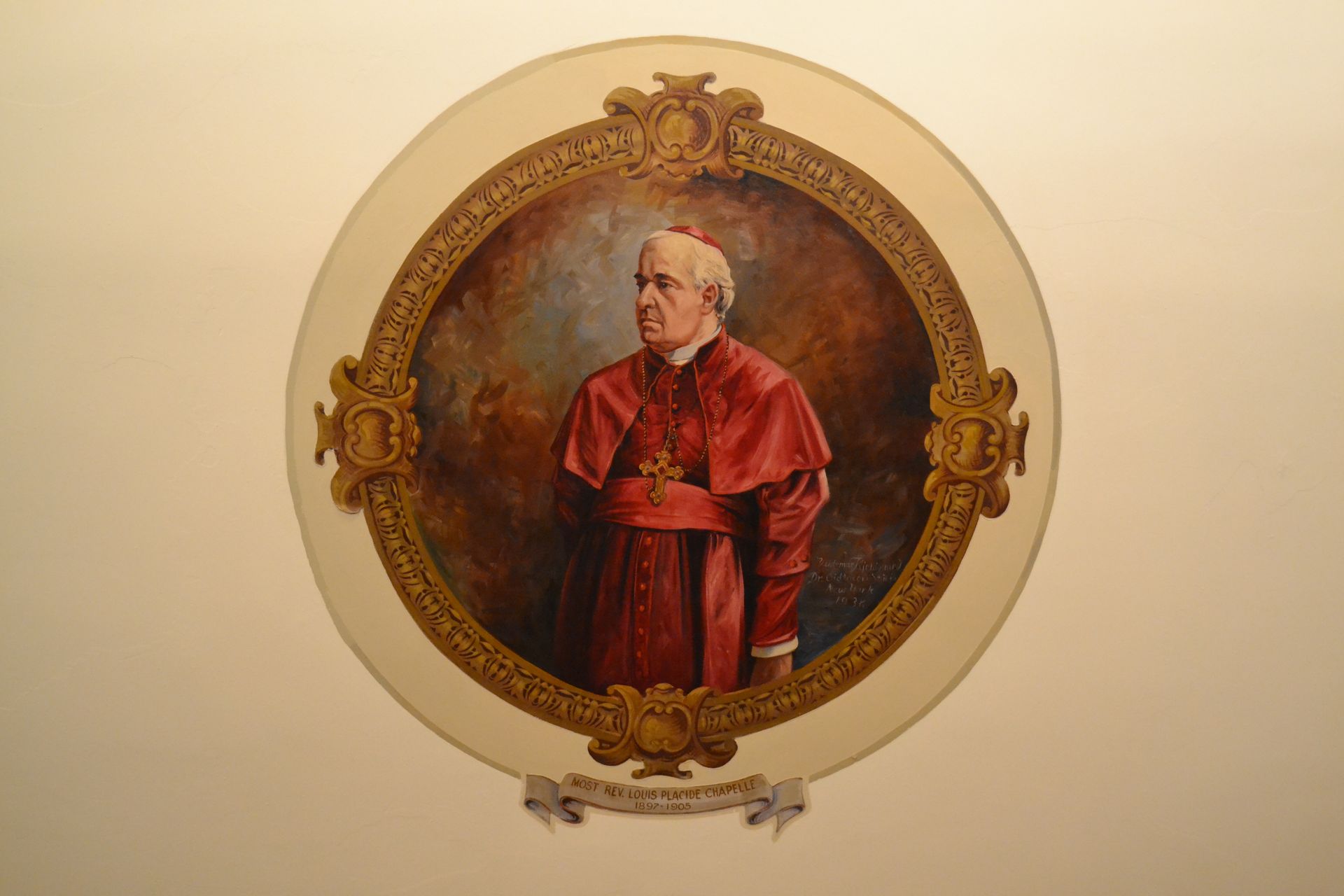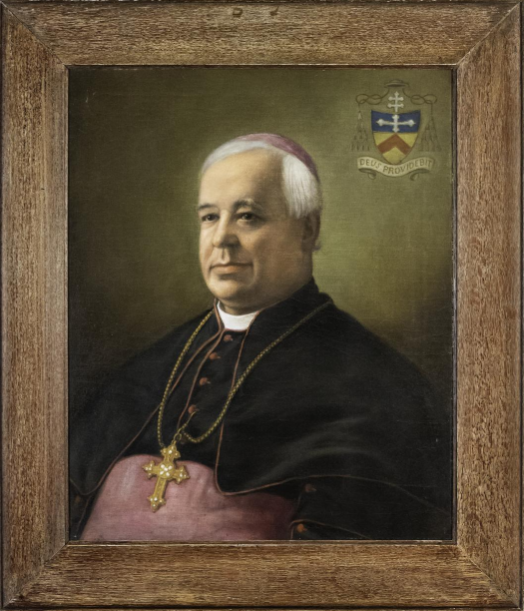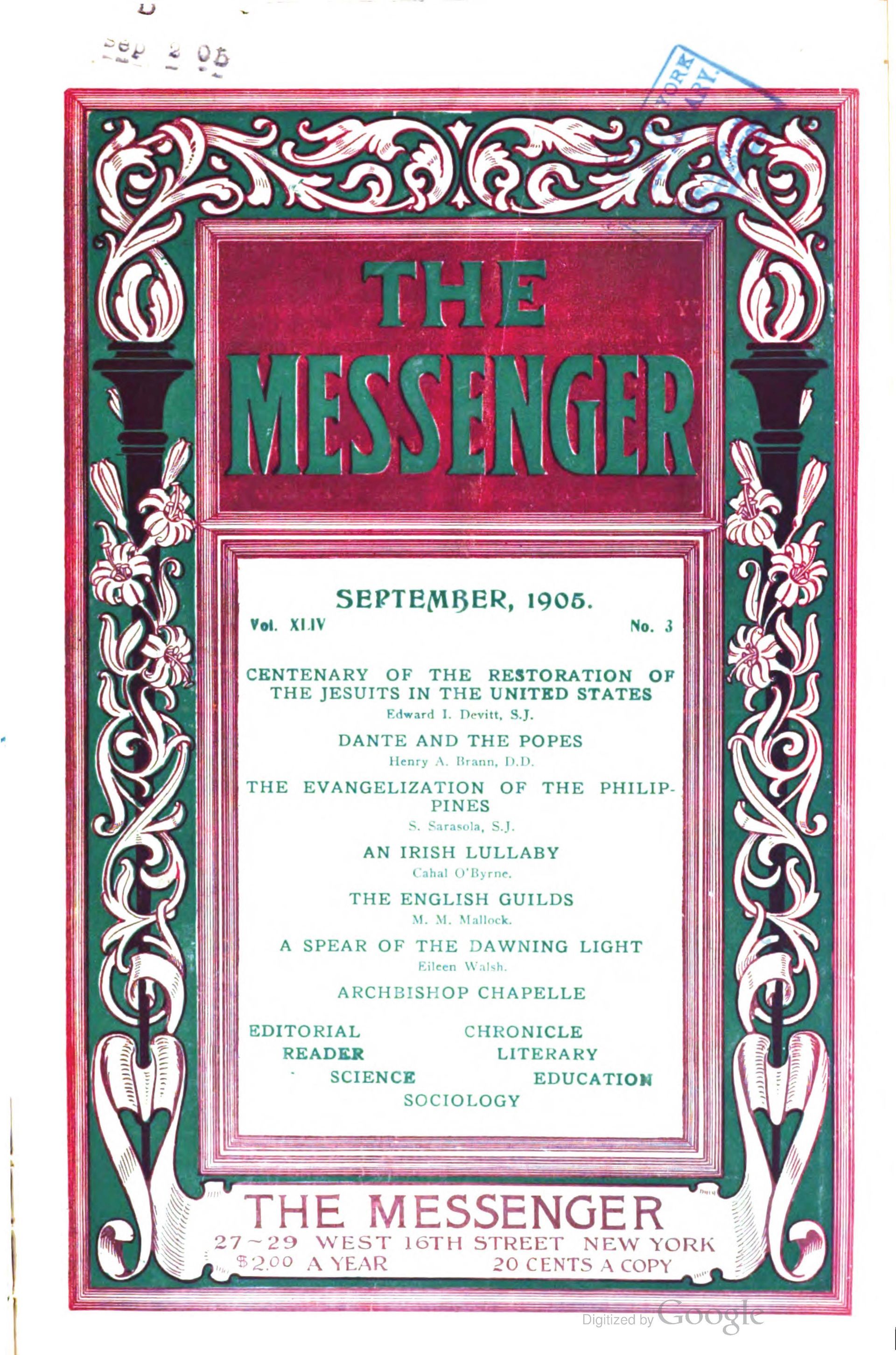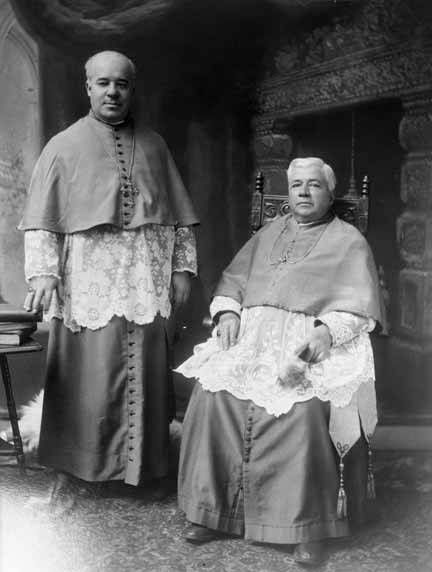OUR NAMESAKE
Archbishop Placide Louis Chapelle
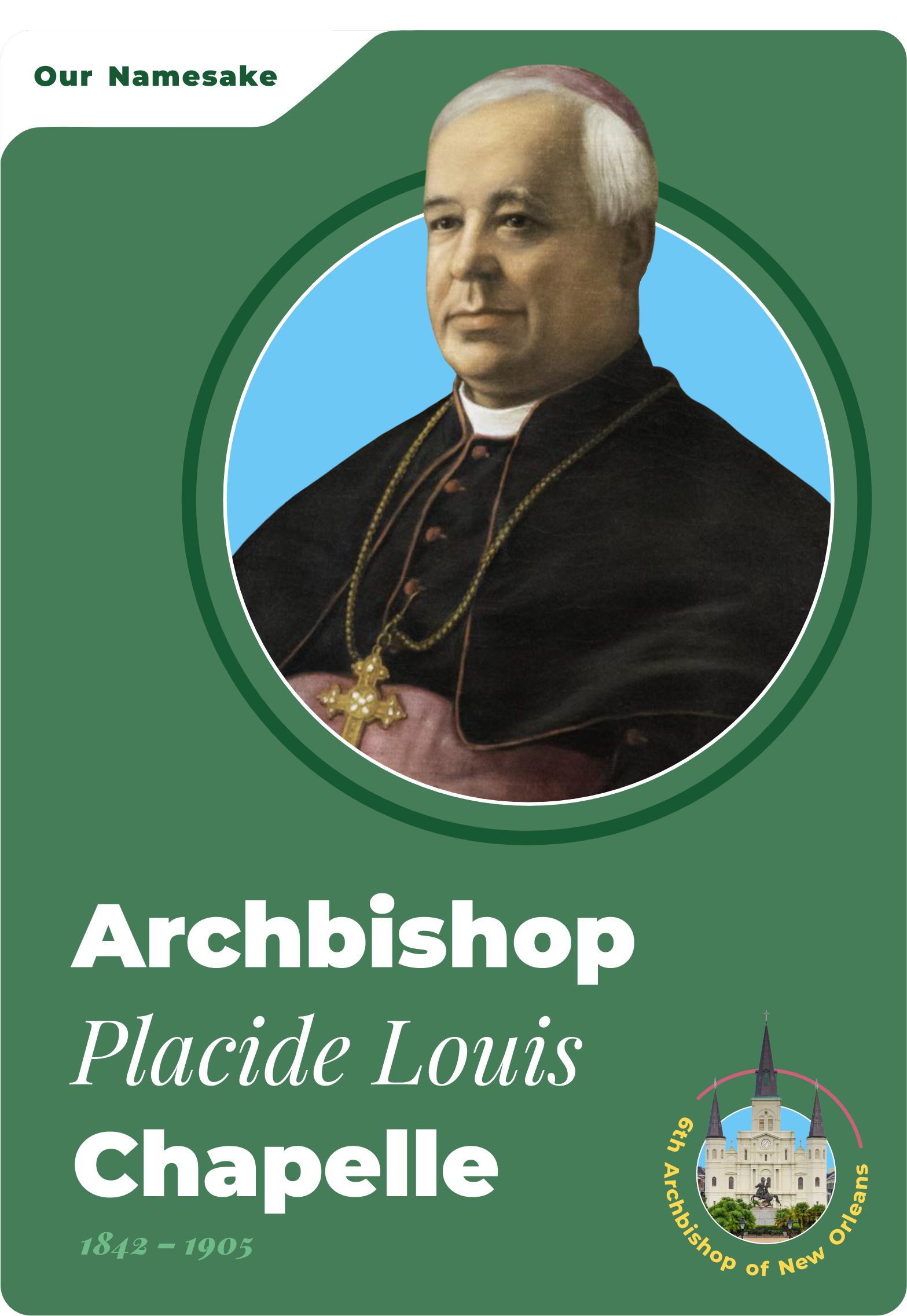
"Such was the great Archbishop of New Orleans, a man of highest integrity and honor, of noble and generous impulses, a pure and upright citizen, a fearless upholder of the truth, a true and holy priest of God, a bishop who had but one thought, the eternal good of his flock, a father and friend to all who needed his help."
- Cardinal Parocchi , 1905
In 1842, Placide Louis Chapelle was born in Fraissinet-de-Lozère to Jean Pierre and Sophia (née Viala) Chapelle. His mother died in childbirth in 1847, when Chapelle was five years old. Chapelle began his classical studies at Mende, France, and concluded them at Enghien, Belgium. At age 17, he was brought to the United States by his uncle Jean Chapelle, a missionary priest in Haiti who worked on the Vatican's concordat with the Haitian government and was on the eve of being appointed Archbishop of Port-au-Prince before his death in 1861.
Taken in part from: APA citation. Orban, A. (1908). Placide-Louis Chapelle. In The Catholic Encyclopedia. New York: Robert Appleton Company. http://www.newadvent.org/cathen/03579a.htm
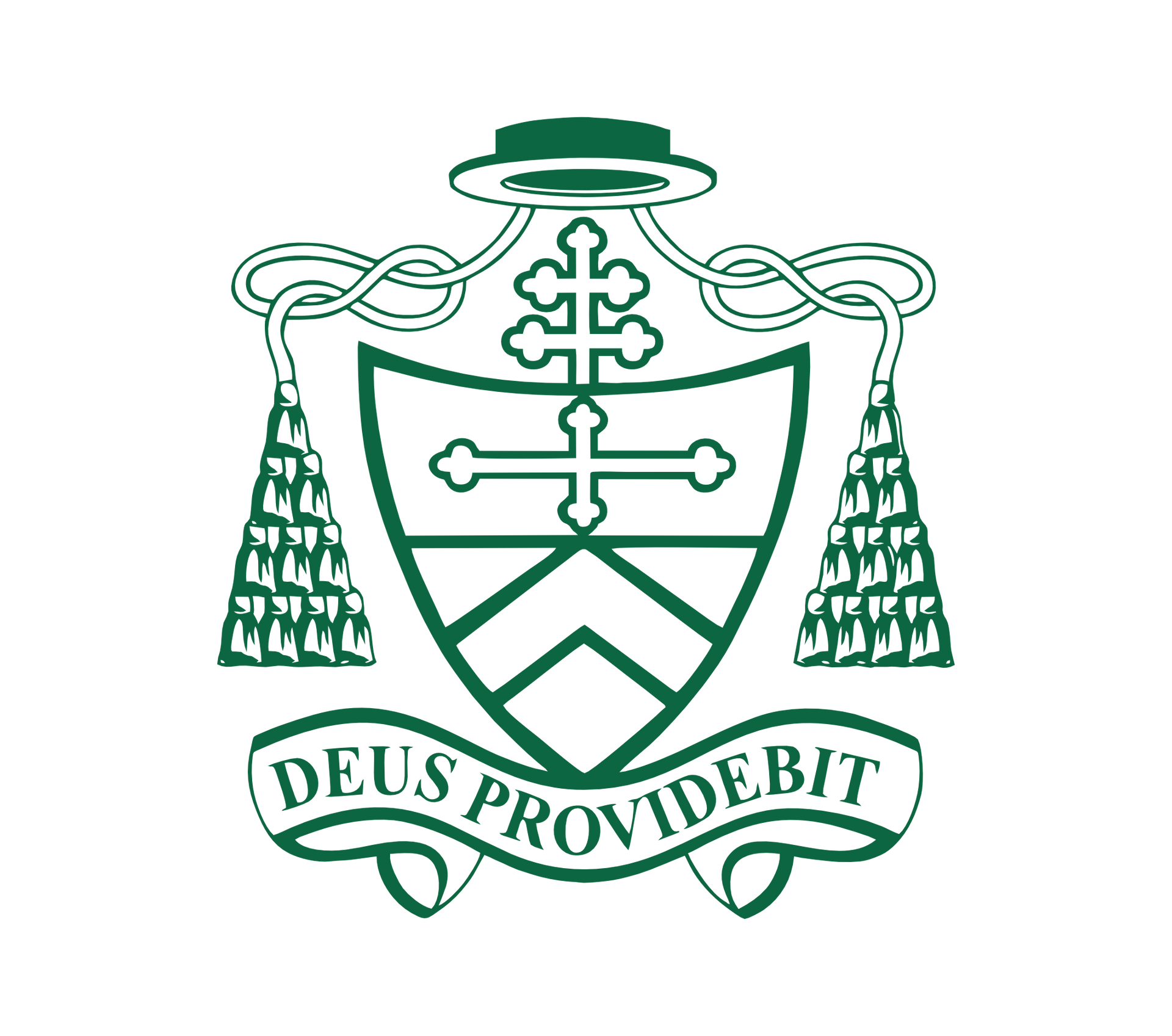
Archbishop Placide Louis Chapelle's coat of arms features the
term "Deus Providebit." Using this as their motto, Archbishop
Chapelle High School continues to celebrate their namesake daily
in prayer by reciting "Deus Providebit . . . God Will Provide."




